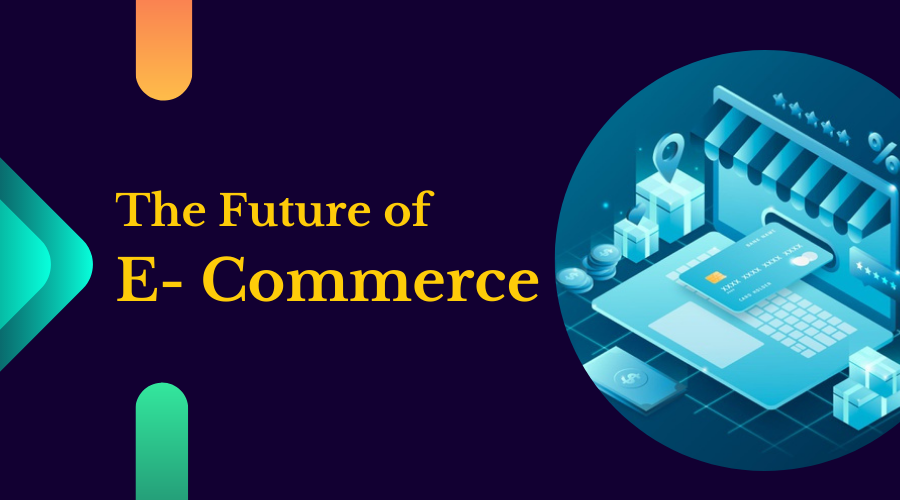The events of 2020 forced e-commerce to evolve and adapt in ways no industry expert could have foreseen. As the dust settles, however, those in the industry have already set their sights on 2021. This blog will share some insights and trends to expect in the world of e-commerce in 2021 to help drive your e-commerce business forward.
In 2021, over 2 billion people worldwide are expected to buy goods or services online, and worldwide retail e-commerce sales will reach $4.9 trillion. Such figures encourage businesses to look for e-commerce developers or web development company who can recognize trends and create a stunning online store that can help drive business.
8 Emerging E-Commerce Trends to Look Out for in 2022
Various e-commerce platforms such as Shopify, Magento, WooCommerce, OpenCart, Lightspeed, Headless, and many others can help you build a scalable online store to guarantee ROI. To help you prepare your business for the next step in e-commerce, here are the top e-commerce trends to stay on top of for a successful 2021.
The Rise of Voice Commerce
Old and young generations alike have embraced voice assistants like Alexa, Siri, and Google Assistant in recent years, for everything, from waking them up to buying products online. Voice commerce sales are anticipated to reach $40 billion by 2022. The growing accuracy and convenience of voice commerce make it crucial to optimize your online store for voice search in 2021.
Omnichannel Shopping
Omnichannel retailing offers shoppers a seamless and consistent shopping experience across multiple channels and devices. Businesses that adopt omnichannel strategies achieve 91% greater year-over-year customer retention rates than businesses that don’t. With the increase in mobile devices and voice assistants, the number of omnichannel customers will also increase in 2021.
Enhancing User Experience with AI, AR, and VR
By 2022, online sellers will spend $7.3 billion on AI, and more than 120,000 stores will be using AR technologies to offer buyers a richer experience. AI offers personalized guidance and recommendations to customers based on their behavior. Moreover, implementing AR and VR technologies will allow your customers to see how a specific product would look on them, resulting in an enhanced shopping experience.
Leveraging Mobile Commerce
By the end of 2021, mobile devices will make up almost 73% of total e-commerce sales. Additionally, 30% of online buyers are more likely to abandon their carts if they find out that the website is not mobile-friendly. Therefore, as an online store owner, it becomes essential for you to develop your store for mobile users first and get an enhanced experience.
Going All Social
More and more people are leveraging social media platforms for almost everything, and shopping is no exception. With the improvement of social media selling capabilities, social media platforms are more than just advertising channels. Instagram, Twitter, Facebook, and YouTube are among the social media channels you must sell-through and make your e-commerce store flourish.
New Payment Options Will Emerge
Payment options are one of the main reasons customers choose a specific website or brand, and that’s why you need to offer your customers’ preferred payment method. Remember, the more convenient and quick a payment option you offer is, the more customers it will attract. As e-commerce stores are already accepting digital wallets, in 2021, they must start accepting cryptocurrencies, especially Bitcoin.
Headless Commerce
The debate of headless vs traditional commerce wages on, but e-commerce retailers have been buzzing about headless commerce architecture for a while now. With no design constraints, easy customization, and easy flexibility (changing front-end with absolutely no changes in the back-end), headless commerce is the future of e-commerce and will indeed dominate traditional e-commerce by 2021.
Offline E-Commerce
Remember in-person shopping? With e-commerce booming and leaving traditional retail behind, there’s a growing trend for taking e-commerce stores offline. Even Amazon is getting in on the action with its chain of physical convenience stores. In 2021, we will surely see an increase in e-commerce brands on the street, bringing the internet to life.
Winding Up
The year 2020 has taught us always to be prepared for the unexpected. Like it or not, e-commerce is only expanding. Voice commerce, omnichannel shopping, AI, AR/VR, mobile commerce, and the rest of the e-commerce trends listed above are likely to take off in 2021. Leverage any (or all) of them and take your e-commerce business to the next level.













